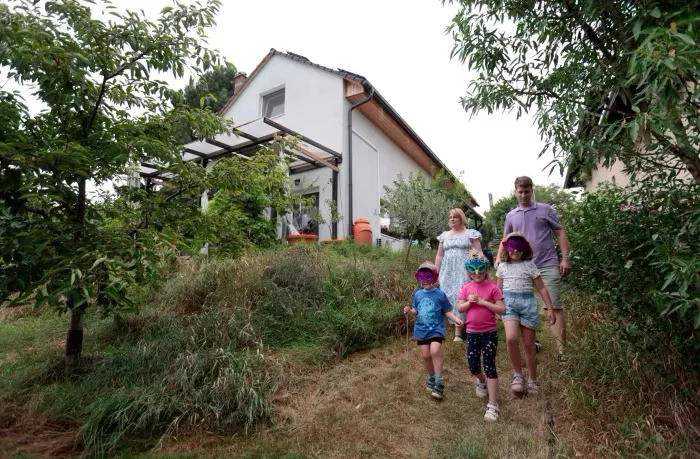Julia Scharle, a 33-year-old mother from Hungary, is among those who have benefited from some of the most generous childbearing support schemes in the world. Over the years, as she and her husband welcomed their three children, they received more than €80,000 in government grants and loans. This included a grant of around €6,000 to help them purchase a new Renault Scenic minivan, which was large enough to accommodate their growing family.
Among the financial aid they received was a €25,000 loan linked to the birth of their second child in 2019. With the birth of their third child, the discounts on this loan increased. Had they had a fourth child, the entire loan could have been forgiven, but medical advice prevented them from expanding their family further. “We wanted a fourth… but we were advised against it for medical reasons. We are a religious family and took this very badly,” Scharle said, noting that the financial support provided a sense of security. “It is not a state responsibility, but in the long run, it is a state interest to make childbearing worth considering.”
Hungary’s family subsidies, introduced under Viktor Orbán’s rightwing populist government, are among the most generous globally. Orbán, who opposes immigration and champions the “traditional” family, has implemented tax breaks that increase with the number of children. For instance, mothers with four or more children are exempt from personal income tax. Other allowances are also provided, and the total family subsidy spending now exceeds 5% of Hungary’s GDP—more than double what the country spends on defense.
These generous subsidies have caught the attention of many other nations, particularly at a time when several wealthier countries are grappling with faster-than-expected declines in birth rates. Such declines pose significant economic challenges for the future. JD Vance, a political ally of former US President Donald Trump, has expressed admiration for Hungary’s approach. While campaigning for the US Senate three years ago, Vance remarked, “Viktor Orbán, who is, of course, the bugaboo of nearly every liberal in the mainstream American media, has implemented a couple of policies that I think are really interesting. They offer loans to new married couples that are forgiven at some point later if those couples eventually stay together and have children. Why can’t we do that here? Why can’t we actually promote family formation here in our country?”
Despite the apparent generosity of these schemes, however, their impact on Hungary’s birth rates has been limited. The onset of the Covid-19 pandemic and the subsequent economic crisis across Europe contributed to a stagnation in birth rates. A generational decline in the number of women in their 20s and 30s has further slowed birth rates.
Hungary’s fertility rate, which hit a record low of 1.23 children per woman in 2011, rose to 1.59 by 2020. However, in recent years, it has stabilized at around 1.5. In the first half of this year, the fertility rate dropped to 1.36 babies per woman, marking the lowest rate in a decade, according to Hungary’s state statistical service, KSH.
In June, the number of births in Hungary plummeted to a record monthly low, with barely 6,000 children born in the nation of 10 million people. This is roughly half the number of live births seen in Hungary a generation ago, as reflected in KSH data.


